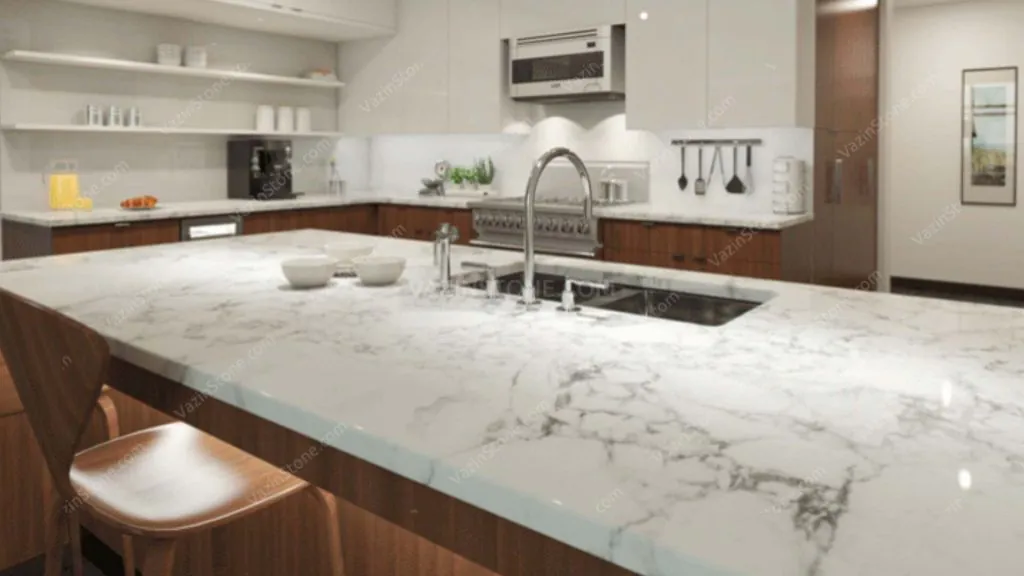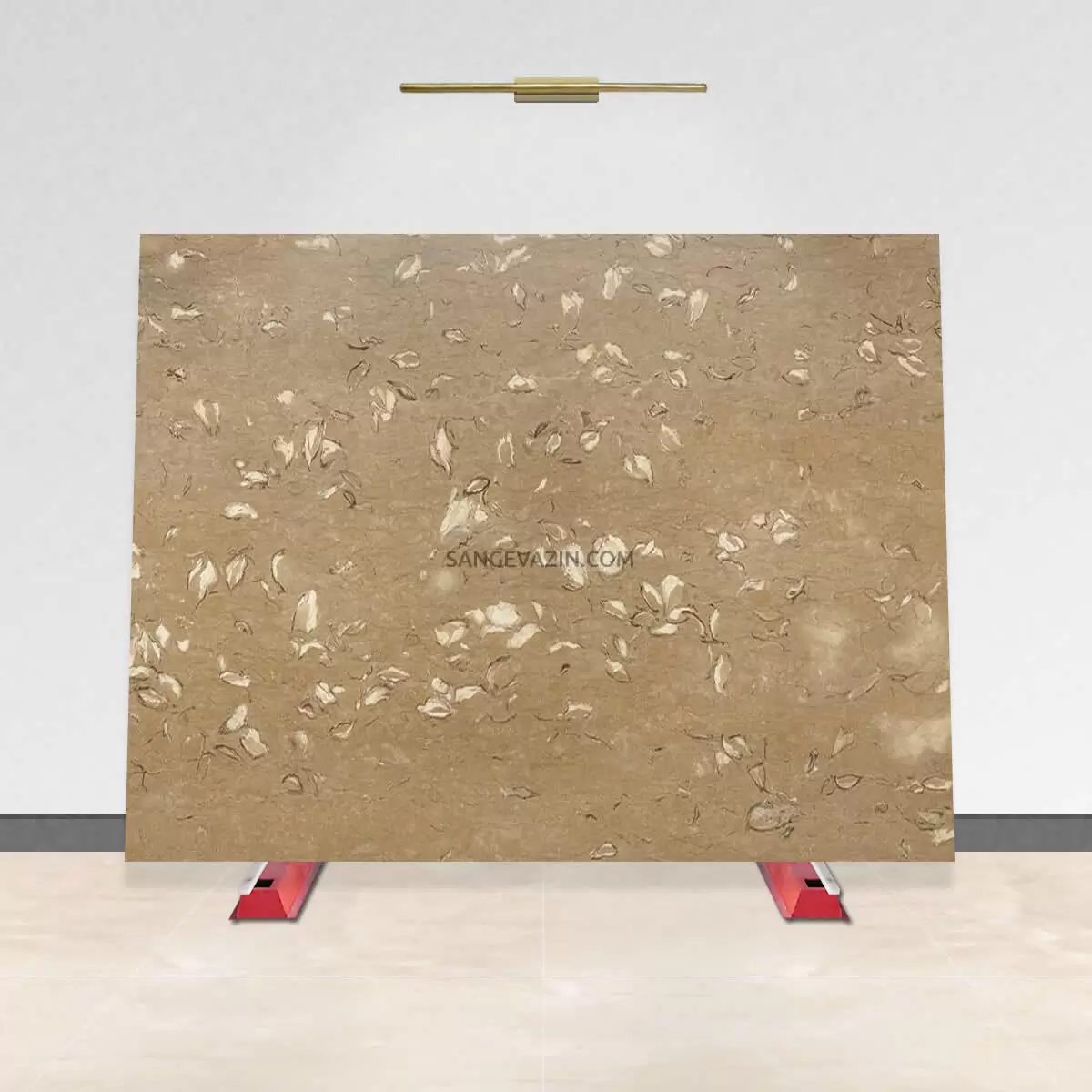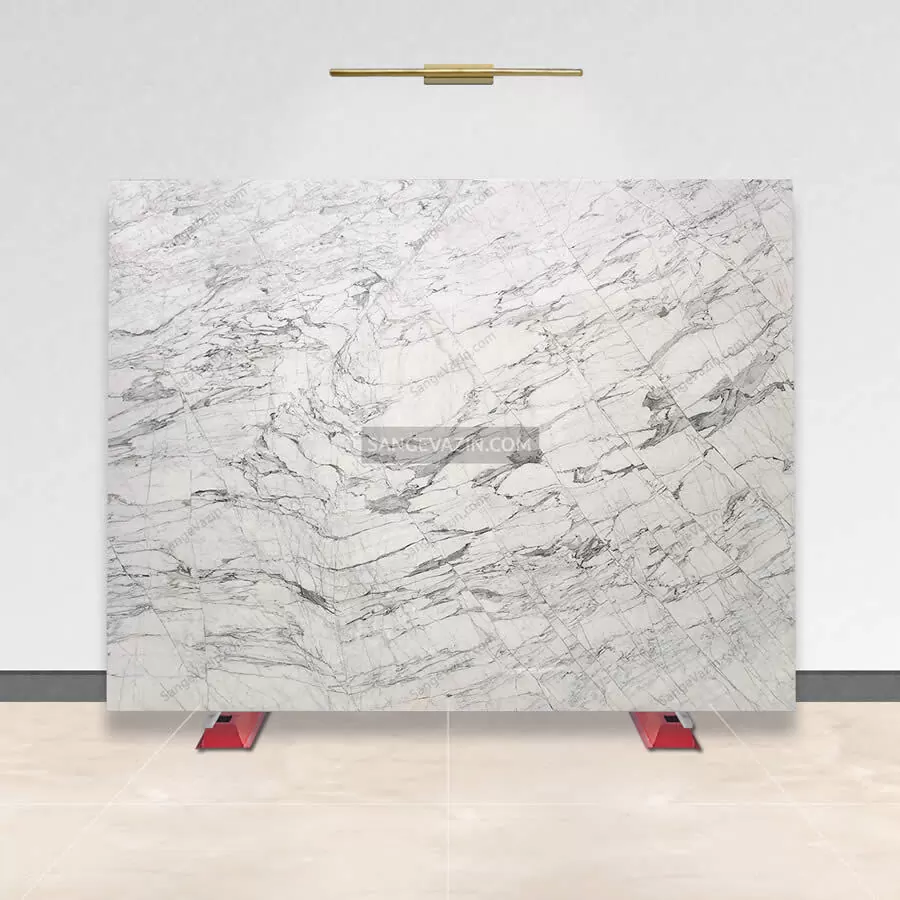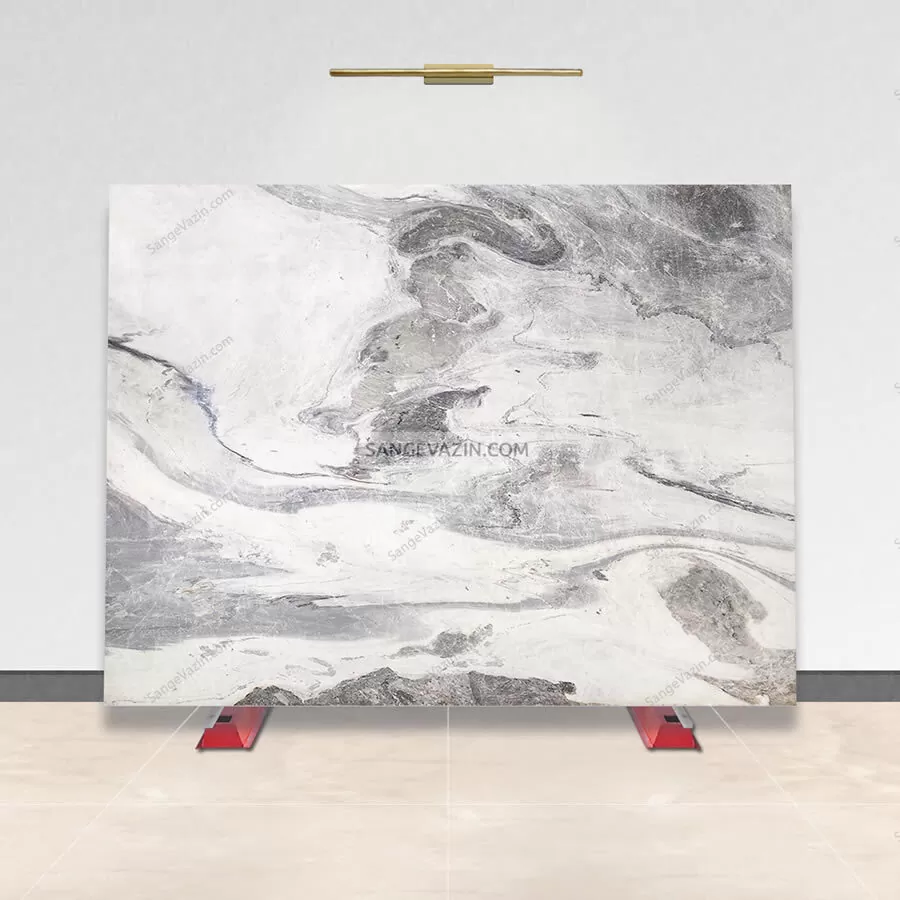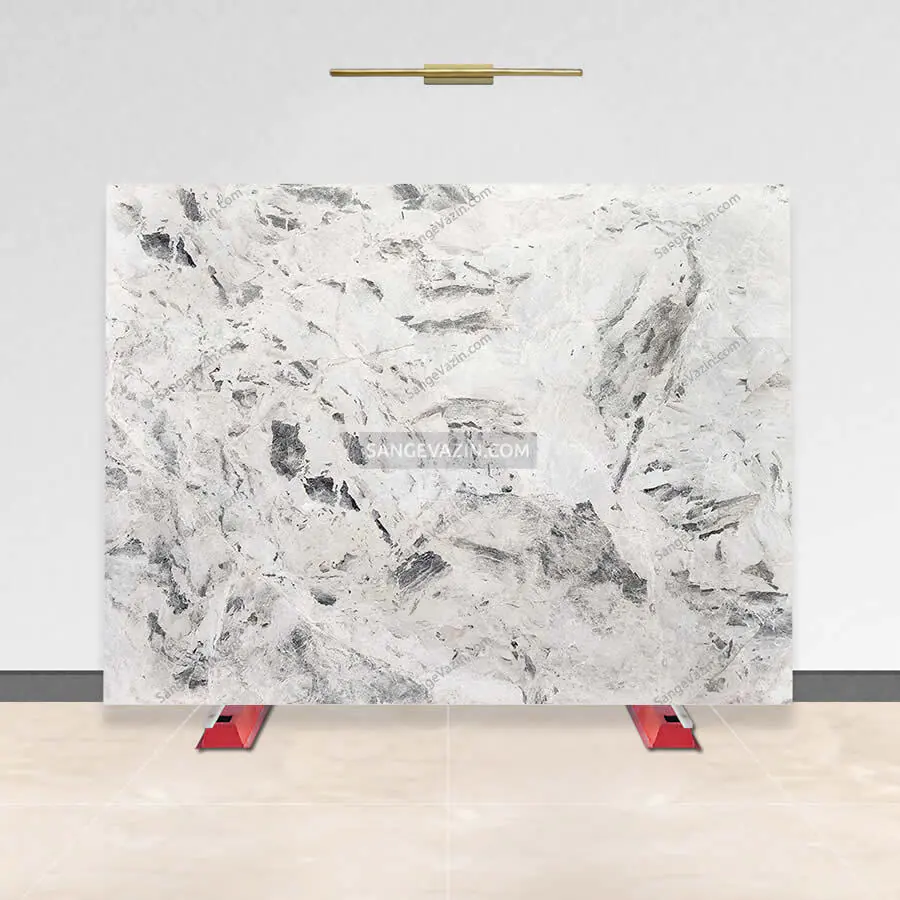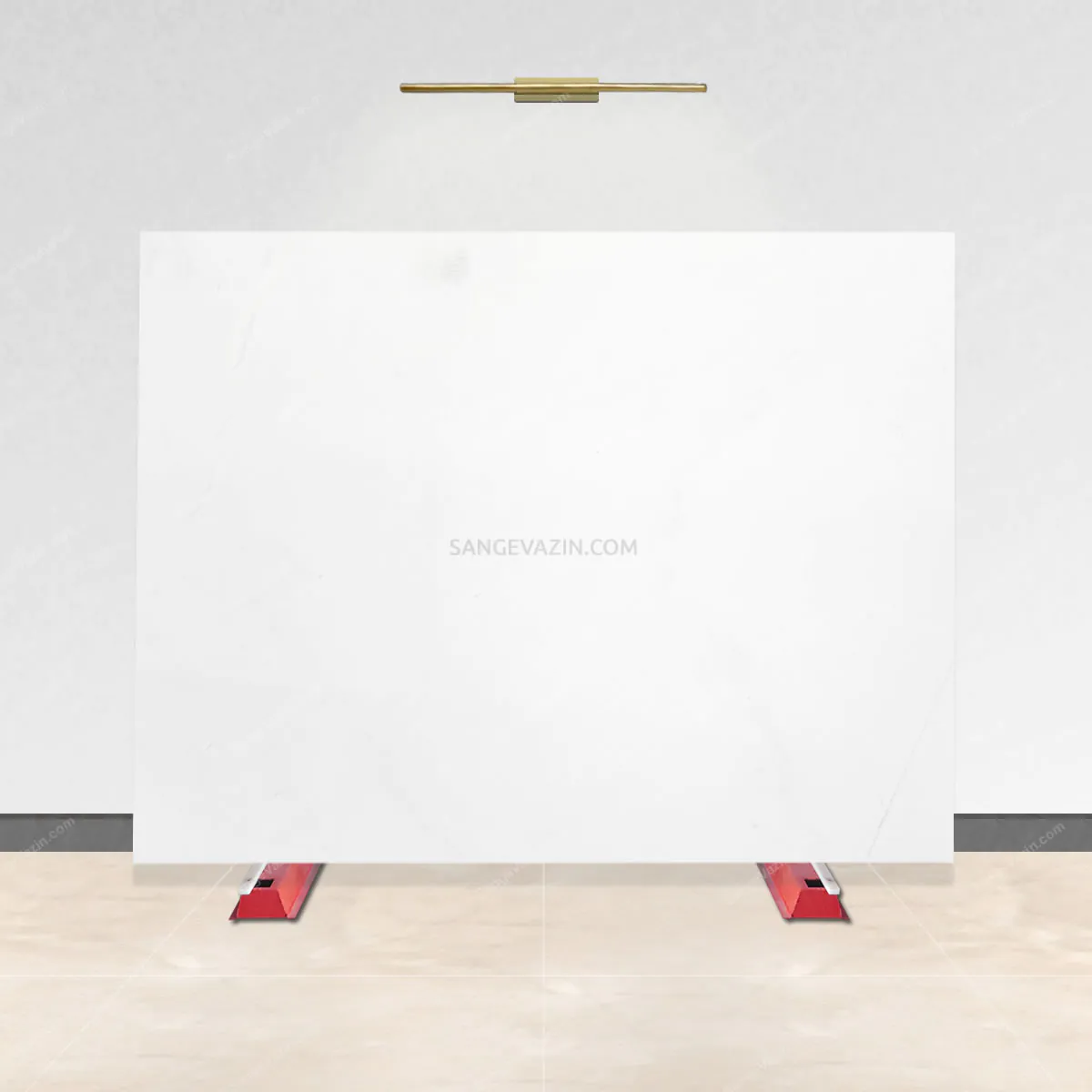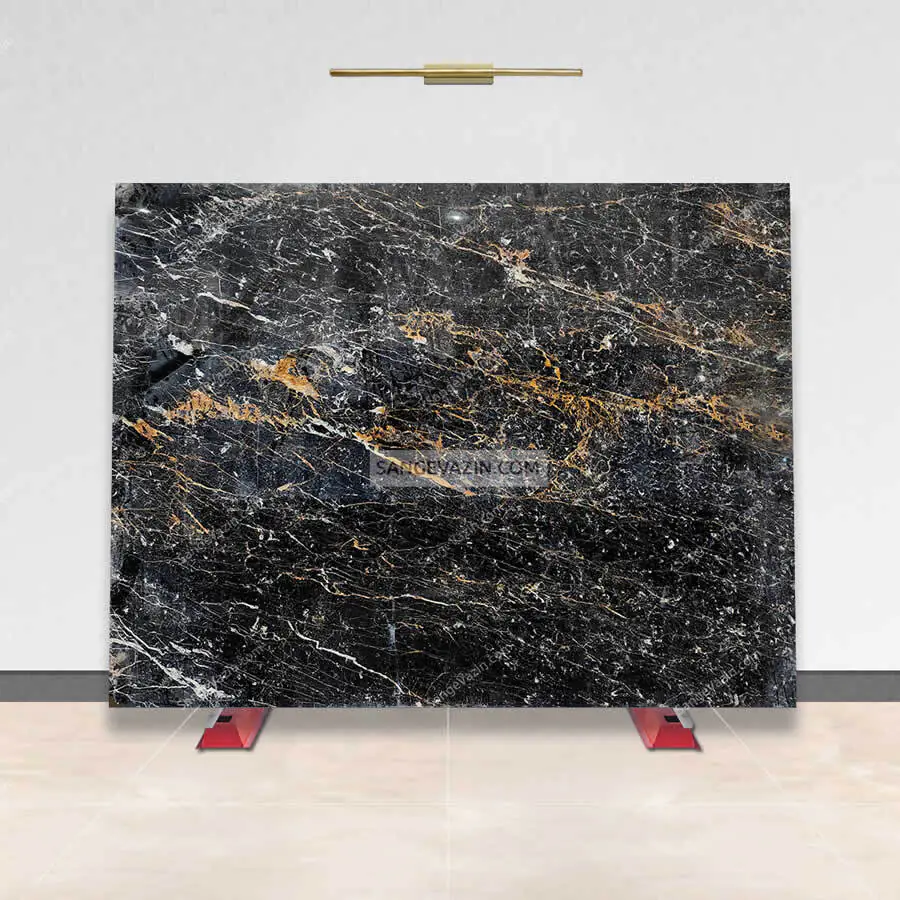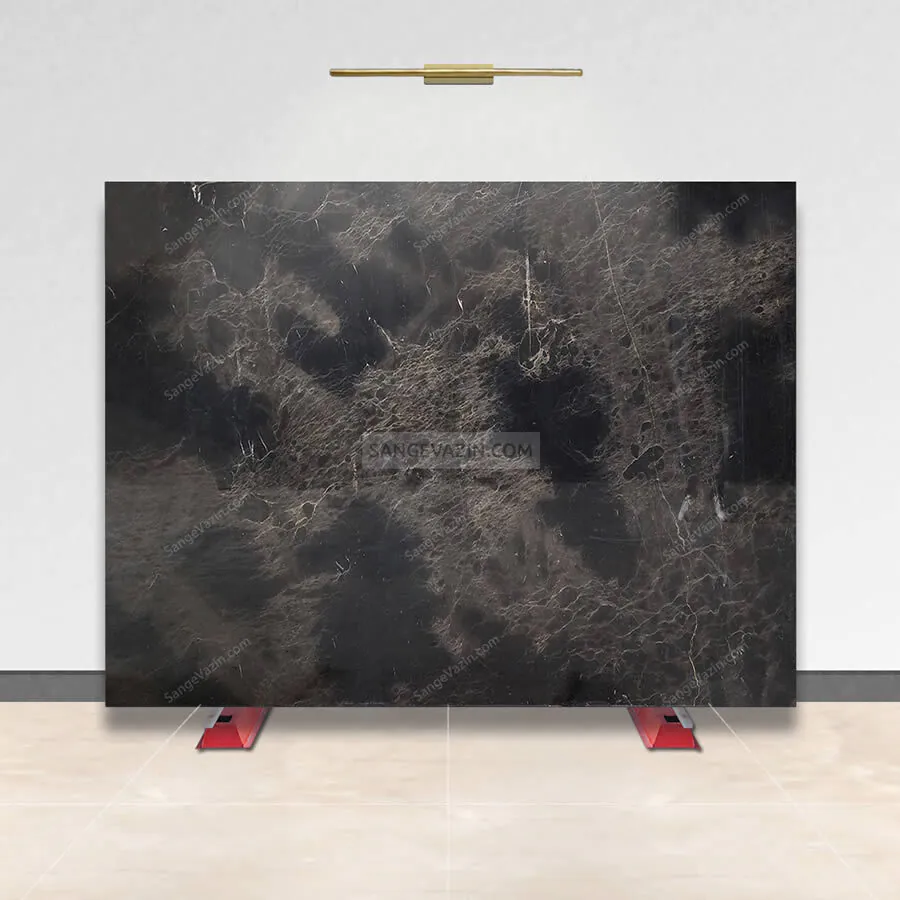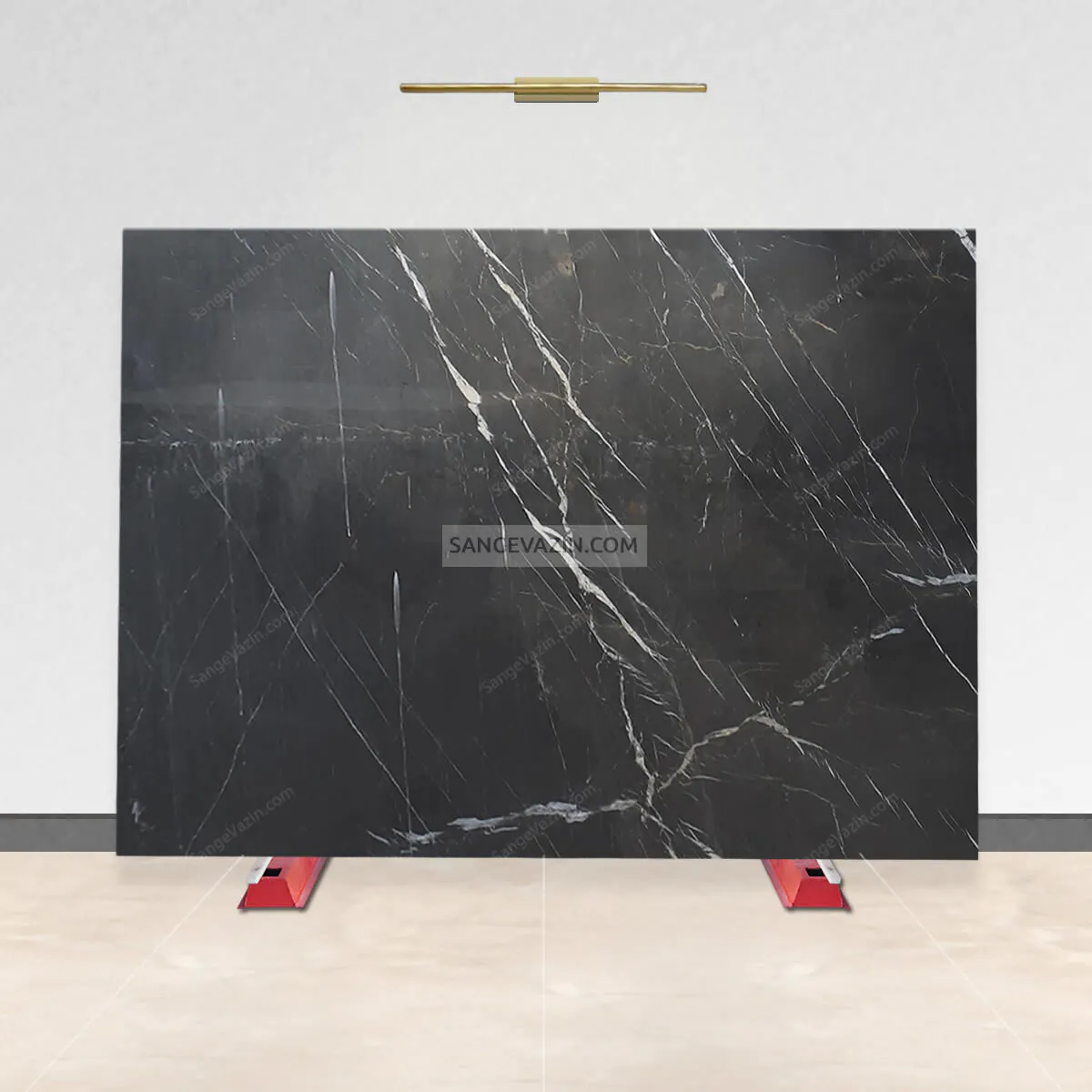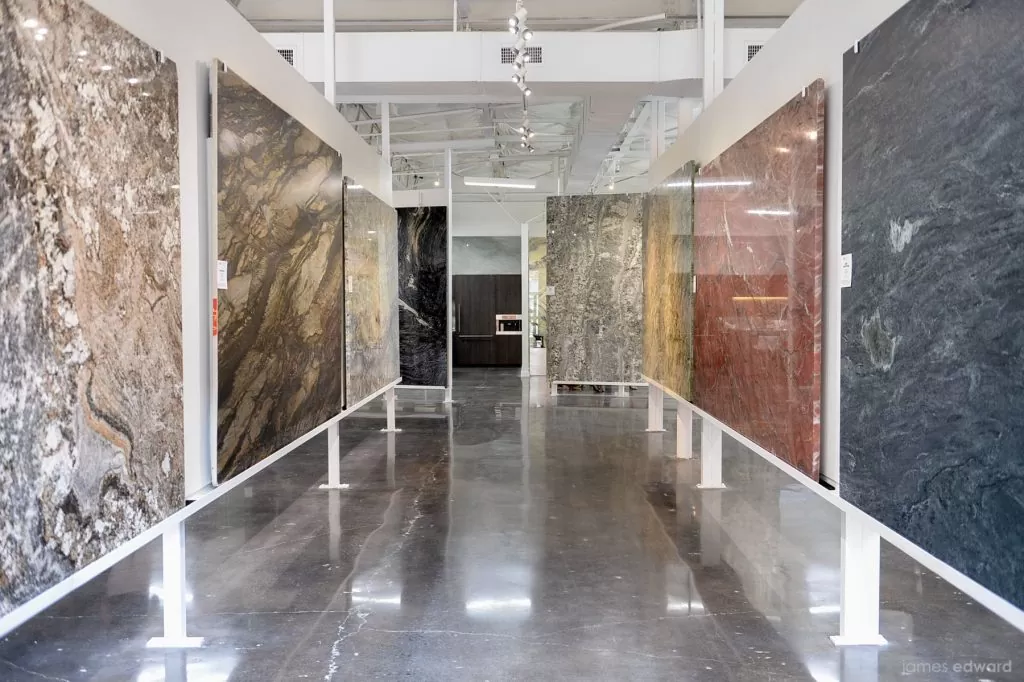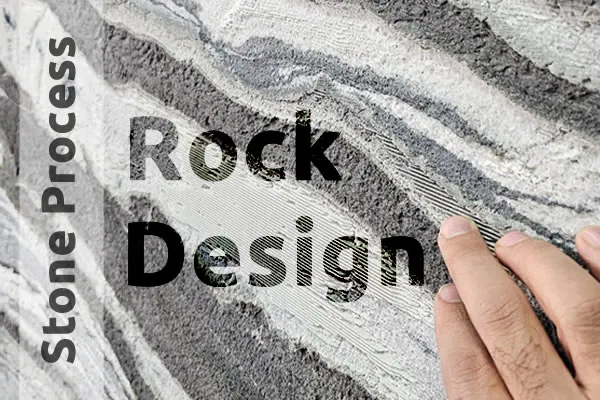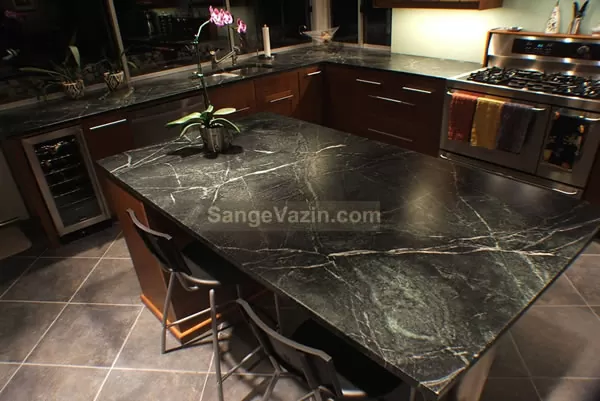Marble Countertops
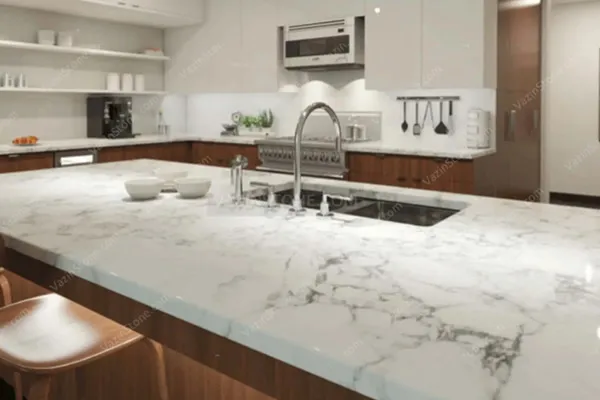
Marble is a metamorphic rock that is formed from limestone, and it’s characterized by unique veining and patterns. Marble is most commonly white, but it can also be found in a variety of colors such as gray, black, pink, and green, depending on the mineral impurities present during its formation. It has been used for many years in buildings due to its beauty and durability. It’s often polished to a high sheen, making it a popular choice for countertops, floors, and decorative objects. In this article, we’re going to explain about marble countertops.
Table of Contents
Why Choose Marble Stone Countertops?
Marble stone countertops are a favored choice, especially in kitchens, owing to their aesthetic appeal and the crafting process involving large, solid pieces of marble cut to fit the countertop space. Beyond its visual charm, marble stone is durable and heat-resistant, making it an ideal material for kitchen use. However, it’s essential to note that marble stone is porous and can be susceptible to staining, emphasizing the importance of regular sealing to prevent damage.
Understanding that marble stone is softer compared to alternatives like granite or quartz, it requires extra care to avoid scratching and staining. Additionally, its sensitivity to acidic substances necessitates consistent sealing to protect against etching and discoloration.
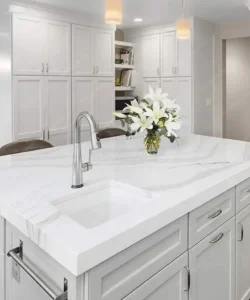

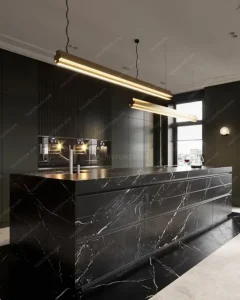
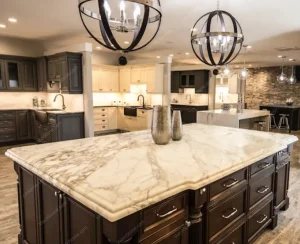
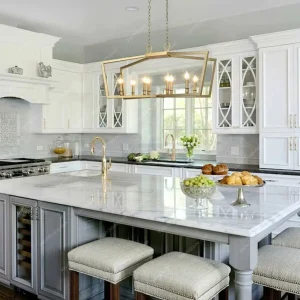
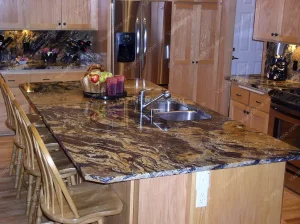
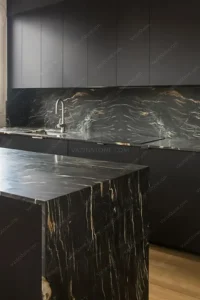

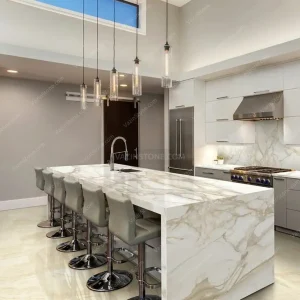
How Are Marble Countertops Made?
The enormous blocks are first cut into slabs using block saws or gang saws. The newest saws cut swiftly and smoothly by combining water jets with abrasive materials. The slab stone is then cut into the proper shape using a bridge saw.
How To Maintain Marble Countertops
By following these maintenance tips, you can keep your marble countertops looking beautiful for years:
- Clean spills immediately: Wipe up any spills, especially acidic substances like lemon juice or vinegar, as soon as they occur. These liquids can cause etching and staining on marble.
- Use a mild cleanser: Clean the marble countertops regularly with a gentle, PH-neutral cleanser. Avoid using abrasive or acidic cleansers that can damage the surface of the marble.
- Avoid cutting directly on the surface: Use cutting boards to prevent scratches and damage to the marble.
- Avoid using harsh chemicals: Do not use harsh chemicals or cleaning products that contain ammonia, bleach, or other abrasive ingredients on marble countertops.
- Use protective measures: Avoid placing items directly on the countertops that could scratch or damage the marble. This includes heavy or sharp objects.
The Cost Of Marble Countertops
Marble countertops can be quite expensive compared to other countertop materials. The cost of marble countertops depends on factors such as the type of marble, thickness, and installation. Overall, while marble countertops can be a significant investment, many people find the beauty and elegance of marble to be worth the cost.
Crystal Marble Countertops
Crystal marble is a type of marble stone that is easy to identify because of its distinct white and crystalline appearance. You can use this stone for countertops as well and it will enhance the beauty of your kitchen.
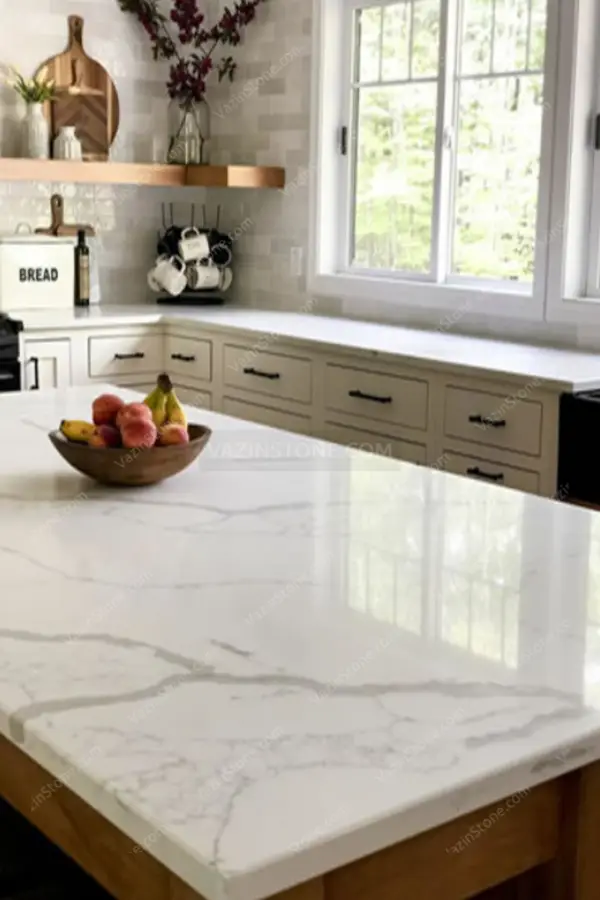
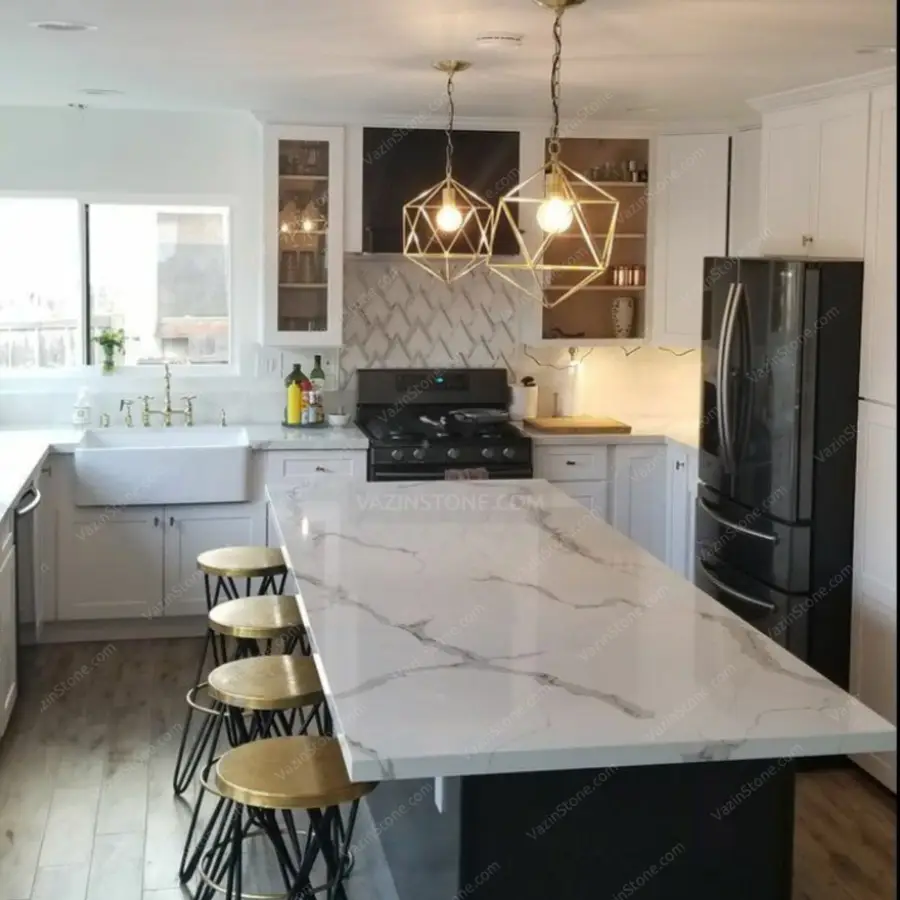
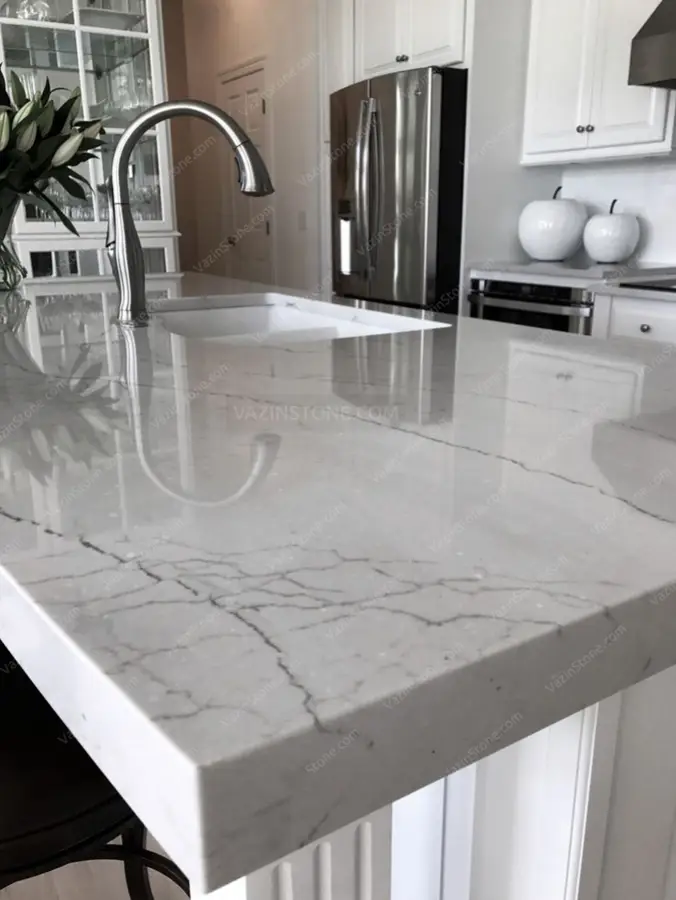
Conclusion
In conclusion, marble countertops are a popular choice for homeowners who are looking for a luxurious and elegant option for their kitchen. While marble does require regular maintenance to keep it looking its best, the natural beauty and durability of this material make it a timeless choice for any home.
Publish on:
February 13, 2024
Updated on:
July 17, 2024
